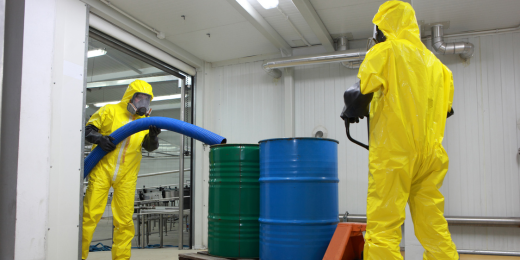How Reclaim Waste can Save You Time, Stress, and Money.
How Reclaim Waste can Save You Time, Stress, and Money.
Blog Article
Not known Facts About Reclaim Waste
Table of ContentsThe 6-Minute Rule for Reclaim WasteFacts About Reclaim Waste Revealed6 Simple Techniques For Reclaim WasteA Biased View of Reclaim WasteSome Known Details About Reclaim Waste
Discover the kinds, incidents, and kinds of fluid waste. Residential sewage waste refers to the waste and items from a property sewage-disposal tank. This type of waste is produced by human beings in homes, institutions, and other buildings. This only includes septic storage tanks that have a drainpipe field. The proper administration and disposal of residential sewer waste require liquid waste to be transferred to a sewage treatment plant where the proper approaches and equipment are put on cleanse and get rid of waste.
Commercial waste commonly consists of potential risks, such as combustible materials or a mixture of fluid and solid waste products, and calls for a much more innovative and detailed disposal process. The disposal of industrial waste usually involves the filtering of waste before transportation to guarantee secure and appropriate disposal. Industrial waste is produced from by-products and runoff of industrial procedures and production.
This type of waste can not use the very same sewer management transportation or processes as septic or commercial fluids. The industrial waste administration procedure calls for the inspection and screening of liquid waste before it undergoes the disposal process (industrial wastewater treatment). Runoff waste is the liquid waste that originates from drainage and excess stormwater in extremely populated areas or cities
Runoff waste can create contamination and flooding if not dealt with correctly. Making sure correct waste monitoring can protect against catastrophes and reduce ecological injury.
What Does Reclaim Waste Do?
Call PROS Services today to find out about our waste monitoring and disposal solutions and the correct ways to care for the fluid waste you produce.
(https://hearthis.at/leon-aube/set/reclaim-waste/)This so-called 'wastewater' is not only a crucial source yet, after treatment, will be launched to our land, waterways or the sea. Utilized water from toilets, showers, baths, cooking area sinks, washings and industrial processes is understood as wastewater.

water used to cool equipment or clean plant and equipment). Stormwater, a form of wastewater, is runoff that streams from agricultural and city areas such as roofings, parks, yards, roadways, courses and rain gutters right into stormwater drains, after rain. Stormwater streams unattended directly to local creeks or rivers, ultimately getting to the sea.
Reclaim Waste Fundamentals Explained
In Queensland, a lot of wastewater is dealt with at sewer treatment plants. Wastewater is delivered from domestic or industrial sites via a system of sewers and pump terminals, referred to as sewage reticulation, to a sewage treatment plant. City governments build, maintain and operate most sewage treatment plants. Operators are licensed under the Environmental Protection Act 1994 to discharge cured wastewater at an acceptable environmental standard right into rivers.
The Department of Natural Resources suggests city governments about managing, operating and keeping sewerage systems and therapy plants. In unsewered locations, local governments might require householders to set up private or house sewage therapy systems to deal with domestic wastewater from toilets, cooking areas, shower rooms and washings. The Division of Natural Resources authorizes using house systems when they are confirmed to be reliable.
In some new class, treatment of some stormwater to eliminate litter, sand and crushed rock has actually begun using gross contaminant catches. Wastewater treatment happens in 4 stages: Removes solid matter.
Utilizes tiny living organisms recognizes as micro-organisms to damage down and get rid of remaining liquified wastes and great particles. Micro-organisms and wastes are integrated in the sludge.
The Main Principles Of Reclaim Waste
Nutrient elimination is not available at all sewer therapy plants since it needs expensive specialized devices. Clear fluid effluent generated after therapy may still consist of disease-causing micro-organisms - liquid waste removal.

Many wastewater streams right into the sewerage system. Under the Act, regional governments provide authorizations and licences for ecologically pertinent activities (ERAs) entailing wastewater launches that may have a local influence.
Reclaim Waste Fundamentals Explained
Or else, samples are considered research laboratory analysis. Often lots of examinations are required to develop the levels of each of the various pollutants such as oils, hefty steels and chemicals in water. Surveillance offers factual information regarding water quality and can confirm that licence conditions are being met. The info obtained via monitoring gives the basis for making water high quality decisions.
Report this page